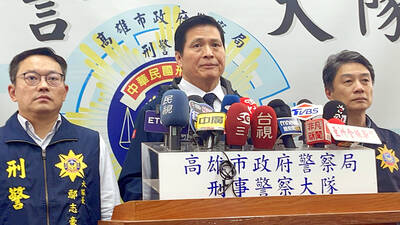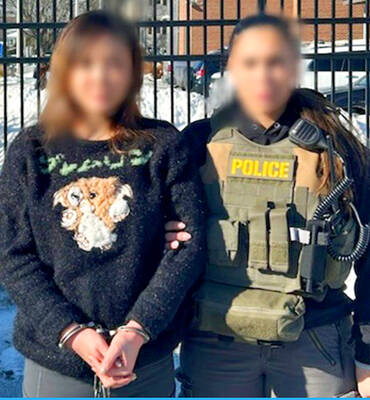Three months after the government began using the National Stabilization Fund to prop up share prices, it said yesterday it would stop pumping more money from the fund into the market.
“In view of the signs of stabilization on the stock market, the expanding turnover and the continuous influx of foreign capital, the management committee ended the authorization for us to use the fund today,” said Tseng, who acts as the executor of the fund.
Tseng made the remarks following a meeting of the fund’s management committee, which decided to withdraw its temporary authorization to use the fund to prop up the stock market.
The government started using the fund to prop up Taiwanese share prices on Sept. 19 and extended the one-month authorization twice in October and last month.
The authorization will expire tomorrow.
Tseng said that the amount of foreign capital coming into the market this month was more than NT$10 billion (US$302 million), despite the global financial crisis.
He said that turnover on the Taipei exchange had been on the increase in comparison with the a few months ago.
“Turnover exceeded NT$90 billion on several days last week,” Tseng said.
Tseng said the management committee would convene again on Jan. 15 and would post details of the performance of the fund from the past three months on the ministry’s Web site.
“The management committee of the fund will continue to closely monitor the economic situation at home and abroad and will convene meetings when necessary,” Deputy Minister of Finance Tseng Ming-chung (曾銘宗) told a media briefing yesterday.

Twenty-four Republican members of the US House of Representatives yesterday introduced a concurrent resolution calling on the US government to abolish the “one China” policy and restore formal diplomatic relations with Taiwan. Led by US representatives Tom Tiffany and Scott Perry, the resolution calls for not only re-establishing formal relations, but also urges the US Trade Representative to negotiate a free-trade agreement (FTA) with Taiwan and for US officials to advocate for Taiwan’s full membership in the UN and other international organizations. In a news release announcing the resolution, Tiffany, who represents a Wisconsin district, called the “one China” policy “outdated, counterproductive

ON PAROLE: The 73-year-old suspect has a criminal record of rape committed when he was serving in the military, as well as robbery and theft, police said The Kaohsiung District Court yesterday approved the detention of a 73-year-old man for allegedly murdering three women. The suspect, surnamed Chang (張), was arrested on Wednesday evening in connection with the death of a 71-year-old woman surnamed Chao (趙). The Kaohsiung City Police Department yesterday also unveiled the identities of two other possible victims in the serial killing case, a 75-year-old woman surnamed Huang (黃), the suspect’s sister-in-law, and a 75-year-old woman surnamed Chang (張), who is not related to the suspect. The case came to light when Chao disappeared after taking the suspect back to his residence on Sunday. Police, upon reviewing CCTV

Johanne Liou (劉喬安), a Taiwanese woman who shot to unwanted fame during the Sunflower movement protests in 2014, was arrested in Boston last month amid US President Donald Trump’s crackdown on illegal immigrants, the Criminal Investigation Bureau (CIB) said yesterday. The arrest of Liou was first made public on the official Web site of US Immigration and Customs Enforcement (ICE) on Tuesday. ICE said Liou was apprehended for overstaying her visa. The Boston Field Office’s Enforcement and Removal Operations (ERO) had arrested Liou, a “fugitive, criminal alien wanted for embezzlement, fraud and drug crimes in Taiwan,” ICE said. Liou was taken into custody

TRUMP ERA: The change has sparked speculation on whether it was related to the new US president’s plan to dismiss more than 1,000 Joe Biden-era appointees The US government has declined to comment on a post that indicated the departure of Laura Rosenberger as chair of the American Institute in Taiwan (AIT). Neither the US Department of State nor the AIT has responded to the Central News Agency’s questions on the matter, after Rosenberger was listed as a former chair on the AIT’s official Web site, with her tenure marked as 2023 to this year. US officials have said previously that they usually do not comment on personnel changes within the government. Rosenberger was appointed head of the AIT in 2023, during the administration of former US president Joe